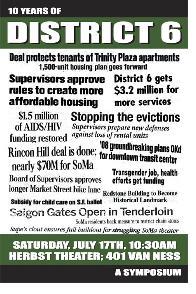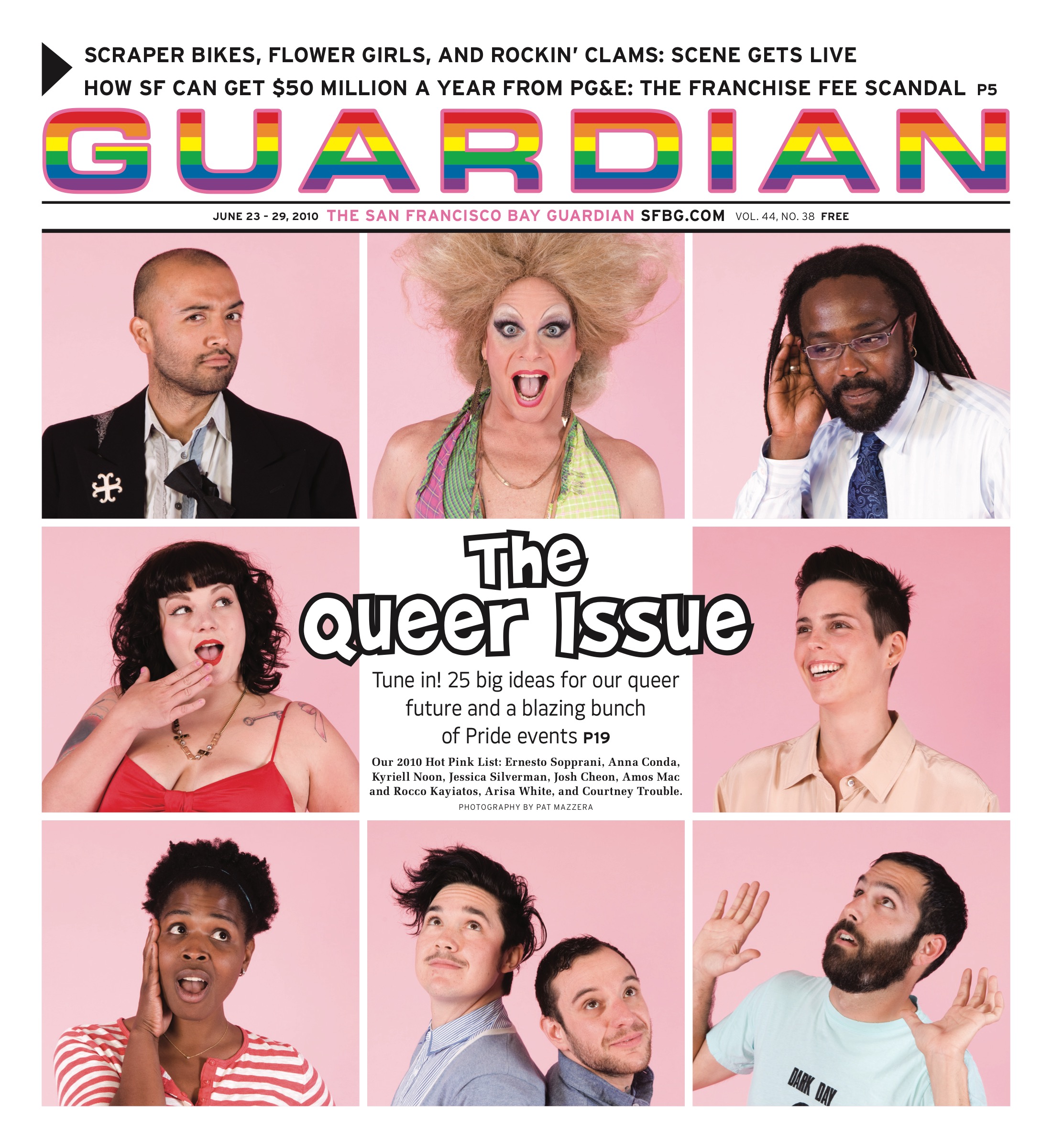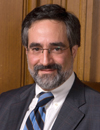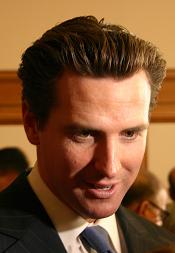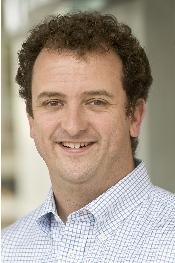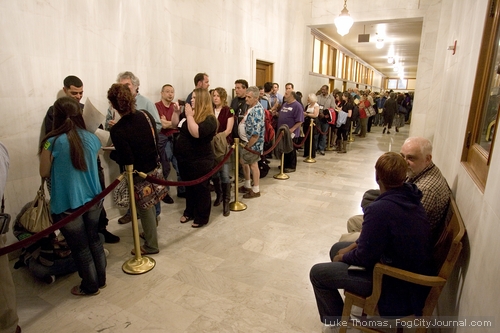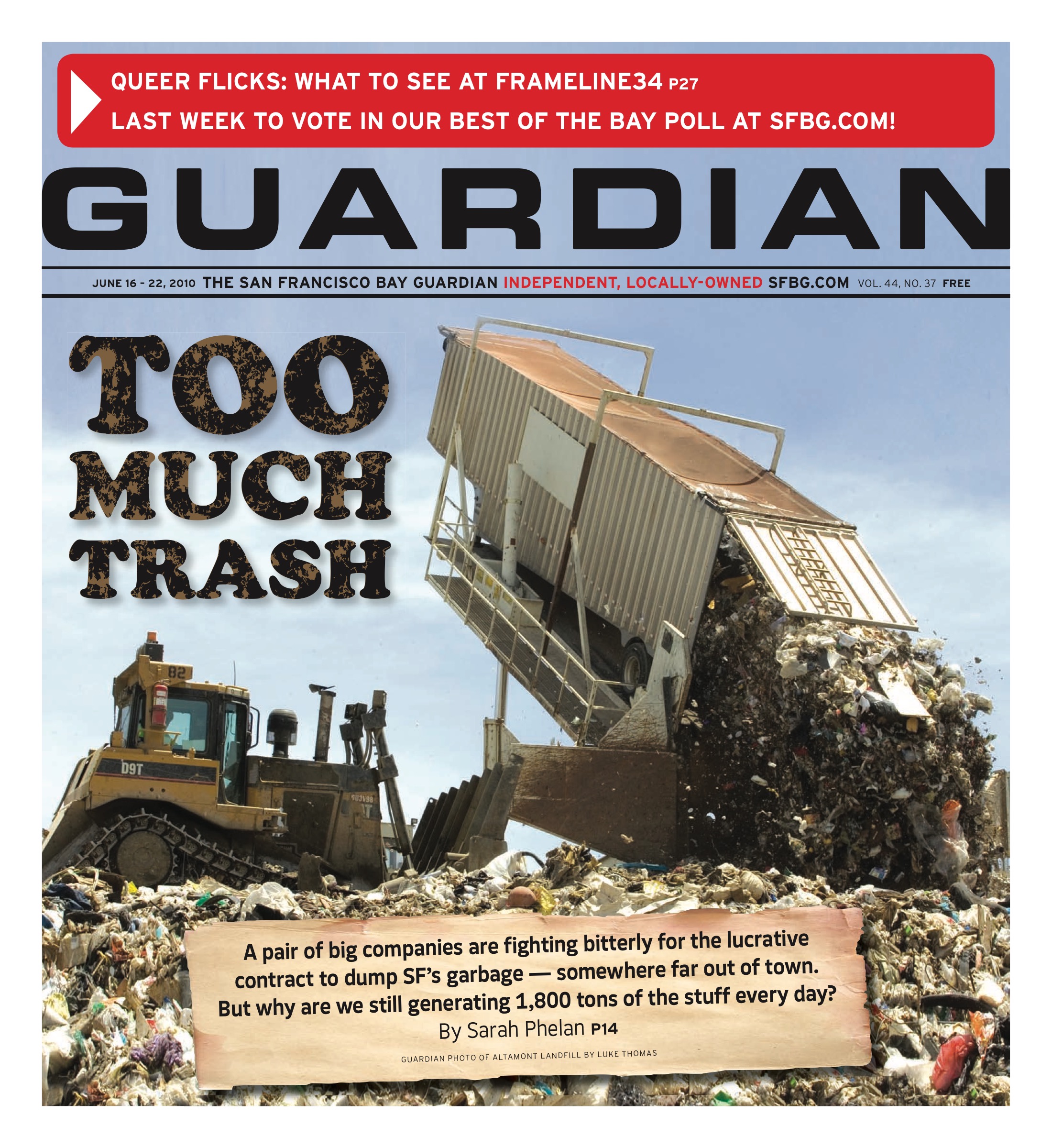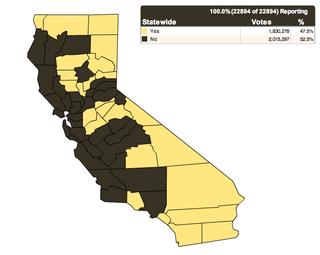Music listings are compiled by Paula Connelly and Cheryl Eddy. Since club life is unpredictable, it’s a good idea to call ahead to confirm bookings and hours. Prices are listed when provided to us. Submit items at listings@sfbg.com.
WEDNESDAY 16
ROCK/BLUES/HIP-HOP
Bernadette, Stripmall Architecture, Conspiracy of Venus, Ziva Independent. 8pm, $14. With a burlesque performance by the Cheese Puffs.
Better Than Lahar, Last Ambassadors Elbo Room. 9pm, $7.
Jay Brannan, Terra Naomi, Jhameel Bottom of the Hill. 9pm, $14.
Brother Raven, Golden Retriever, Moholy-Nagy Hemlock Tavern. 9pm, $6.
David Broza, GE Smith Great American Music Hall. 8pm, $35.
Delphic, Butterfly Bones, Delle Vellum Rickshaw Stop. 8pm, $12.
Genius and the Thieves, Victory and Associates, Hi-Nobles El Rio. 8pm, $7.
Cathy Lemon and Johnny Ace with guests Tommy Castro, Kid Andersen, and Ron
Thompson Biscuits and Blues. 8 and 10pm, $15.
Pink Noise, Spiro Agnew, Sharing Type Kimo’s. 9pm, $5.
Ray Collins Hot Club, Go Getters Verdi Club, 2424 Mariposa, SF; www.atownagency.com. 8pm, $15.
Spindrift Knockout. 9:30pm, $7.
Tea Leaf Green Café du Nord. 9pm, $30.
Wheels on Fire Pissed-Off Pete’s, 4528 Mission, SF; www.pissedoffpetes.com. 9pm.
DANCE CLUBS
Booty Call Q-Bar, 456 Castro, SF; www.bootycallwednesdays.com. 9pm. Juanita Moore hosts this dance party, featuring DJ Robot Hustle.
Hands Down! Bar on Church. 9pm, free. With DJs Claksaarb, Mykill, and guests spinning indie, electro, house, and bangers.
Jam Fresh Wednesdays Vessel, 85 Campton, SF; (415) 433-8585. 9:30pm, free. With DJs Slick D, Chris Clouse, Rich Era, Don Lynch, and more spinning top40, mashups, hip hop, and remixes.
Machine Sloane, 1525 Mission, SF; (415) 621-7007. 10pm, free. Warm beats for happy feet with DJs Sergio, Conor, and André Lucero.
Mary-Go-Round Lookout, 3600 16th St, SF; (415) 431-0306. 10pm, $5. A weekly drag show with hosts Cookie Dough, Pollo Del Mar, and Suppositori Spelling.
RedWine Social Dalva. 9pm-2am, free. DJ TophOne and guests spin outernational funk and get drunk.
Respect Wednesdays End Up. 10pm, $5. Rotating DJs Daddy Rolo, Young Fyah, Irie Dole, I-Vier, Sake One, Serg, and more spinning reggae, dancehall, roots, lovers rock, and mash ups.
Synchronize Il Pirata, 2007 16th St, SF; (415) 626-2626. 10pm, free. Psychedelic dance music with DJs Helios, Gatto Matto, Psy Lotus, Intergalactoid, and guests.
Yoruba Dance Sessions Bacano! Som., 2925 16th St, SF; (415) 558-8521. 9pm, free. With resident DJ Carlos Mena and guests spinning afro-deep-global-soulful-broken-techhouse.
THURSDAY 17
ROCK/BLUES/HIP-HOP
Athlete, Carney Independent. 8pm, $15.
Electric Sister, Deeva, Royal Highness Café du Nord. 9pm, $12.
Melody Gardot Fillmore. 8pm, $35.
Jeremy Jay, My First Earthquake, Attachments Rickshaw Stop. 8pm, $10.
Eilen Jewell, Sallie Ford and the Sound Outside Hotel Utah. 9pm, $10.
Kill Moi, Cinematography, Fake Your Own Death Independent. 9:30pm, $6.
Mallard, Wolf, Ryan Moritz, Camp Out Thee Parkside. 9pm, $6.
Moanin’ Dove, Geographer, Leopold and His Fiction, DJ John Vanderslice Bottom of the Hill. 9pm, $10.
Moonalice, Eoin Harrington, Barry "The Fish" Melton Great American Music Hall. 7:30pm, $25. Benefit for Haight Ashbury Free Clinics.
Nachtmahr, Underbyte DNA Lounge. 9pm, $15.
Thrones, Hot Victory Hemlock Tavern. 9pm, $10.
*US Bombs, Forgotten, Druglords of the Avenues, Cunt Sparrer Slim’s. 8pm, $14.
FOLK/WORLD/COUNTRY
JimBo Trout and the Fishpeople Atlas Café. 8pm, free.
Tipsy House Plough and Stars. 9pm.
DANCE CLUBS
Afrolicious Elbo Room. 9:30pm, $5-7. DJs Pleasuremaker and Señor Oz and special guest Frank(e) spin Afro-tropical, samba, and funk.
Caribbean Connection Little Baobab, 3388 19th St, SF; (415) 643-3558. 10pm, $3. DJ Stevie B and guests spin reggae, soca, zouk, reggaetón, and more.
Club Jammies Edinburgh Castle. 10pm, free. DJs EBERrad and White Mice spinning reggae, punk, dub, and post punk.
Drop the Pressure Underground SF. 6-10pm, free. Electro, house, and datafunk highlight this weekly happy hour.
Electric Feel Lookout, 3600 16th St, SF; (415) 431-0306. 9pm, $2. With DJs subOctave and Blondie K spinning indie music videos.
Good Foot Som., 2925 16th St, SF; (415) 558-8521. 10pm, free. With DJs spinning R&B, Hip hop, classics, and soul.
Jivin’ Dirty Disco Butter, 354 11th St., SF; (415) 863-5964. 8pm, free. With DJs spinning disco, funk, and classics.
Koko Puffs Koko Cocktails, 1060 Geary, SF; (415) 885-4788. 10pm, free. Dubby roots reggae and Jamaican funk from rotating DJs.
Mestiza Bollywood Café, 3376 19th St, SF; (415) 970-0362. 10pm, free. Showcasing progressive Latin and global beats with DJ Juan Data.
Nightvision Harlot, 46 Minna, SF; (415) 777-1077. 9:30pm, $10. DJs Danny Daze, Franky Boissy, and more spinning house, electro, hip hop, funk, and more.
Peaches Skylark, 10pm, free. With an all female DJ line up featuring Deeandroid, Lady Fingaz, That Girl, and Umami spinning hip hop.
Popscene 330 Rich. 10pm, $10. Rotating DJs spinning indie, Britpop, electro, new wave, and post-punk.
Rock Candy Stud. 9pm-2am, $5. Luscious Lucy Lipps hosts this electro-punk-pop party with music by ReXick.
Solid Thursdays Club Six. 9pm, free. With DJs Daddy Rolo and Tesfa spinning roots, reggae, dancehall, soca, and mashups.
FRIDAY 18
ROCK/BLUES/HIP-HOP
Birdmonster, Dynamite Walls, King Baldwin Bottom of the Hill. 10pm, $12.
Bryan Minus and the Disconnect, Baker London, Odd Owl Brainwash Café, 1122 Folsom; www.brainwash.com. 8pm.
Junip, LoveLikeFire Rickshaw Stop. 8:30pm, $15.
Jamie Lidell Amoeba, 1855 Haight, SF; (415) 831-1200. 6pm, free.
Jamie Lidell, Alex B Independent. 9pm, $20.
LSD and the Search for God, Meek, Fuxa, DJ Darragh Skelton Hemlock Tavern. 9:30pm, $8.
Manicato, Band Data Elbo Room. 10pm, $13.
"Mix Tape: A Night of Music with Locus Favorite and Emerging Artists" ARC Studios and Gallery, 1246 Folsom; http://kearnystreet.org. 8pm, $10. Benefit for Kearny Street Workshop.
Moccretro, Borneo Epicenter Café, 764 Harrison, SF; (415) 543-5436. 7pm, free.
Portugal the Man, Builders and the Butchers, Morning Teleportation Fillmore. 9pm, $20.
*Chuck Prophet and the Mission Express, Stephanie Finch and the Company Men, DJ
QM, Rec-League, Adverse, Parable Paul Hotel Utah. 9pm, $10.
EC Scott Bimbo’s 365 Club. 8 and 10pm, $20.
Shellshag, Grass Widow, Dirty Marquis, Street Eaters El Rio. 9pm, $8.
Kelley Stoltz Great American Music Hall. 9pm, $16.
Tha Dogg Pound (Daz and Kurupt), thekeenone, Beatiki, Sincere, DJ Mr. E Rock-It Room. 10pm, $25.
Thou, Molloch, Fell Voices, Pale Chalice, DJ Rob Metal Thee Parkside. 9pm, $8.
Wang Chung, Notorious Slim’s. 9pm, $25.
Devon Williams, Impediments, Haunted Tiger, Blue Jungle, Cum Stain, Cosmonauts Pissed-Off Pete’s, 4528 Mission, SF; www.pissedoffpetes.com. 9pm.
JAZZ/NEW MUSIC
Audium 9 1616 Bush, SF; (415) 771-1616. 8:30pm, $15.
Black Market Jazz Orchestra Top of the Mark. 9pm, $10.
Karen Segal Group Savanna Jazz. 7:30pm, $8.
Lalah Hathaway Yoshi’s San Francisco. 8 and 10pm, $22-30.
FOLK/WORLD/COUNTRY
Bluegrass Bonanza Plough and Stars. 9pm.
Ila Mawana Mojito. 9pm, $7.
Amy Obenski, Liz Ryder Bazaar Café, 5927 California, SF; (415) 831-5620. 7pm, free.
Pine Box Boys, Good Luck Thriftstore Outfit, Shitkickers Café du Nord. 9:30pm, $12.
Rob Reich and Craig Ventresco Amnesia. 6pm, free.
Tempo: A Brazilian Musical Journey Icthus Gallery, 1769 15th St., SF; (415) 563-3896. 7:30pm, $20. Featuring Brazilian popular music, prayer songs, bossa nova, poetry, movement, and more.
DANCE CLUBS
Activate! Lookout, 3600 16th St, SF; (415) 431-0306. 9pm, $3. Face your demigods and demons at this Red Bull-fueled party.
Blow Up Rickshaw Stop. 10pm, $10. With rotating DJs.
Carl Craig and Amp Fiddler Mighty. 10pm, $12.
Dirty Rotten Dance Party Madrone Art Bar. 9pm, $5. With DJs Morale, Kap10 Harris, and Shane King spinning electro, bootybass, crunk, swampy breaks, hyphy, rap, and party classics.
Electric Kingdom Eve Lounge, 575 Howard, SF; www.trueskool.com. 10pm, free. With DJ Ren the Vinyl Archaeologist spinning electro, breaks, and house.
Exhale, Fridays Project One Gallery, 251 Rhode Island, SF; (415) 465-2129. 5pm, $5. Happy hour with art, fine food, and music with Vin Sol, King Most, DJ Centipede, and Shane King.
Fat Stack Fridays Koko Cocktails, 1060 Geary, SF; (415) 885-4788. 10pm, free. With rotating DJs Romanowski, B-Love, Tomas, Toph One, and Vinnie Esparza.
Fubar Fridays Butter, 354 11th St., SF; (415) 863-5964. 6pm, $5. With DJs spinning retro mashup remixes.
Gay Asian Paradise Club Eight, 1151 Folsom, SF; www.eightsf.com. 9pm, $8. Featuring two dance floors playing dance and hip hop, smoking patio, and 2 for 1 drinks before 10pm.
Good Life Fridays Apartment 24, 440 Broadway, SF; (415) 989-3434. 10pm, $10. With DJ Brian spinning hip hop, mashups, and top 40.
Hot Chocolate Milk. 9pm, $5. With DJs Big Fat Frog, Chardmo, DuseRock, and more spinning old and new school funk.
Hubba Hubba Revue: Hell DNA Lounge. 9pm, $10-15. Burlesque.
Look Out Weekend Bambuddha Lounge. 4pm, free. Drink specials, food menu and resident DJs White Girl Lust, Swayzee, Philie Ocean, and more.
Loose Stud. 10pm-3am, $5. DJs Domino and Six spin electro and indie, with vintage porn visual projections to get you in the mood.
M4M Fridays Underground SF. 10pm-2am. Joshua J and Frankie Sharp host this man-tastic party.
Oldies Night Knockout. 9pm, $2-4. Doo-wop, one-hit wonders, and more with DJs Primo, Daniel, and Lost Cat.
Radioactivity 222 Hyde, SF; (415) 440-0222. 6pm. Followed by Warm Leatherette at Space Gallery, 1141 Polk, SF; (415) 377-3325. 9pm. A back to back traveling Cold Wave night with DJs spinning danceable post-punk and psychedelic.
Rockabilly Fridays Jay N Bee Club, 2736 20th St, SF; (415) 824-4190. 9pm, free. With DJs Rockin’ Raul, Oakie Oran, Sergio Iglesias, and Tanoa "Samoa Boy" spinning 50s and 60s Doo Wop, Rockabilly, Bop, Jive, and more.
Too Cool for (Pre)School Som. 9pm, $10-$20 donation. With DJs Space Cowboy, Mancub, Shissler, and more. Proceeds to benefit the Silverspot Cooperative Nursery School.
SATURDAY 19
ROCK/BLUES/HIP-HOP
*Earthless, Dirty Power, Hot Fog, Carlton Melton Bottom of the Hill. 9pm, $12.
"Epic Daze: Cannabis Cup USA" Mezzanine. 6:30pm. With Eagles of Death Metal, Lyrics Born, and more.
Terry Hanck Biscuits and Blues. 8 and 10pm, $20.
*He Who Cannot Be Named, White Barons, Lords El Rio. 10pm, $7.
Head Like a Kite, Jonesin’, Smoosh Hemlock Tavern. 9:30pm, $7.
Jim Lauderdale Noe Valley Ministry, 1021 Sanchez, SF; www.noevalleymusicseries.com. 8:15pm, $22.
Mensclub, Bar Feeders, Sassy, Thinger El Rio. 4pm, $8.
*Murphy’s Law, Hoods, Pressure Point, Wolves and Thieves Thee Parkside. 9pm, $12.
Playing for Change Band Slim’s. 9pm, $35.
Point of View, Binky, New Hope for the Dead Thee Parkside. 3pm, free.
Super Adventure Club, PC Muñoz’s Left Hook, Punk Funk Mob Hotel Utah. 9pm, $8.
Thumper Pissed-Off Pete’s, 4528 Mission, SF; www.pissedoffpetes.com. 9pm.
JAZZ/NEW MUSIC
Al Coster Group Savanna Jazz. 7:30pm, $5.
Audium 9 1616 Bush, SF; (415) 771-1616. 8:30pm, $15.
Eric Kurtzrock Trio Ana Mandara, Ghirardelli Square, 891 Beach, SF; (415) 771-6800. 8pm, free.
Lalah Hathaway Yoshi’s San Francisco. 8 and 10pm, $30.
Rita Lackey and friends Caffe Trieste, 1667 Market, SF; www.caffetrieste.com. 6:30pm.
FOLK/WORLD/COUNTRY
Infamous Stringdusters Café du Nord. 9pm, $14.
Andy Irvine Plough and Stars. 9pm.
Keep the Faith: New Old Time Chautauqua Cowell Theater, Fort Mason, Marina at Bay, SF; (415) 345-7575. 7:30pm, $28. A benefit for KPFA.
Sun Araw, Jealousy Amnesia. 9pm, $6.
DANCE CLUBS
Bar on Church 9pm. Rotating DJs Foxxee, Joseph Lee, Zhaldee, Mark Andrus, and Niuxx.
Bootie DNA Lounge. 9pm, $6-12.
Booty Bassment Knockout. 10pm, $5. Booty-shaking hip-hop with DJs Ryan Poulsen and Dimitri Dickenson.
Club Skirts Orson, 508 4th St., SF; (415) 777-1508?. 9pm, free. With Topp Twins performing live and more. Honoring the women’s films at Frameline.
Cock Fight Underground SF. 9pm, $7. Locker room antics galore with electro-spinning DJ Earworm and hostess Felicia Fellatio.
Dead After Dark Knockout. 6-9pm, free. With DJ Touchy Feely.
Fire Corner Koko Cocktails, 1060 Geary, SF; (415) 885-4788. 9:30pm, free. Rare and outrageous ska, rocksteady, and reggae vinyl with Revival Sound System and guests.
Fringe Madrone Art Bar. 9pm, $5. With DJs Blondie K and subOctave spinning indie music videos.
Full House Gravity, 3505 Scott, SF; (415) 776-1928. 9pm, $10. With DJs Roost Uno and Pony P spinning dirty hip hop.
Larry Heard aka Mr. Fingers Som. 9pm, $20.
Gemini Pride Party Supperclub. 9:30pm, $10. With DJs Mei Lwun, Nuxx, Kipp Glass, and Tristan Jaxx and dance performances throughout the night.
HYP Club Eight, 1151 Folsom, SF; www.eightsf.com. 10pm, free. Gay and lesbian hip hop party, featuring DJs spinning the newest in the top 40s hip hop and hyphy.
Non Stop Bhangra Rickshaw Stop. 9pm, $20. Bhangra beats with Dholrhythms and DJ Jimmy Love.
Prince vs. Michael Madrone Art Bar. 8pm, $5. With DJs Dave Paul and Jeff Harris battling it out on the turntables with album cuts, remixes, rare tracks, and classics.
Rock City Butter, 354 11th St., SF; (415) 863-5964. 6pm, $5 after 10pm. With DJs spinning party rock.
Saturday Night Soul Party Elbo Room. 10pm, $10. Sixties soul with DJs Lucky, Phengren Oswald, and Paul Paul.
Social Club Lookout, 3600 16th St, SF; (415) 431-0306. 9pm. Shake your money maker with DJs Lee Decker and Luke Fry.
Spirit Fingers Sessions 330 Ritch. 9pm, free. With DJ Morse Code and live guest performances.
SUNDAY 20
ROCK/BLUES/HIP-HOP
*BellRays, Hank IV, Carlos, Primitivas, Ezee Tiger Bottom of the Hill. 2pm, $12.
Christian Mistress, Serpent Crown Hemlock Tavern. 9pm, $6.
Drag the River, Famous, Stacey Dee and Lil Jen Thee Parkside. 8pm, $10.
Angélique Kidjo, Sarazino Sigmund Stern Grove, 19th Ave at Sloat, SF; www.sterngrove.org. 2pm, free.
Little Wings, Aaron Novik’s Thorny Brocky, NoHow On Make-Out Room. 8pm, $8.
Andy McKee, Johnny Dickinson Great American Music Hall. 8pm, $21.
A Place to Bury Strangers, Light Pollution, Weekend Rickshaw Stop. 7:30pm, $14.
Rescues Café du Nord. 8pm, $10.
"Soundwave Festival ((4)): Rock the Bike at Sunday Streets Mission" 24th St and Valencia, SF; www.projectsoundwave.com. 1pm, free. Bike-powered music with Kemo Sabe.
Bobbie Spider Webb Biscuits and Blues. 8 and 10pm, $15.
William Control, Mankind Is Obsolete, Savi0r, Cystem Cex DNA Lounge. 8:30pm, $15.
JAZZ/NEW MUSIC
Lalah Hathaway Yoshi’s San Francisco. 5 and 7pm, $5-30.
Cal Keoola and Jon Rubin Bliss Bar, 4026 24th St, SF; www.blissbarsf.com. 4:30pm, $10.
Tango #9 Café Royale, 800 Post, SF; (415) 641-6033. 7pm, free.
FOLK/WORLD/COUNTRY
Kally Price Band, SF Bourbon Kings Amnesia. 9pm, $7-$10.
Kitchen Fire Thee Parkside. 4pm, free.
Ray Martinez and Azabache El Rio. 4pm, $8.
Darcy Noonan, Richard Mandel, Jack Glider and friends Plough and Stars. 9pm.
2010 Country Throwdown Tour Shoreline Amphitheatre, One Amphitheatre Parkway, Mountain View; (650) 967-3000. 1pm, $21-$41. With Montgomery Gentry, Jamey Johnson, Little Big Town, Jack Ingram, Eric Church, Eli Young Band, Lost Trailers, Heidi Newfield, and more.
DANCE CLUBS
Call In Sick Skylark. 9pm, free. DJs Animal and I Will spin danceable hip-hop.
DiscoFunk Mashups Cat Club. 10pm, free. House and 70’s music.
Dub Mission Elbo Room. 9pm, $6. Dub, roots, and classic dancehall with Vinnie Esparza and Ludichris.
Gloss Sundays Trigger, 2344 Market, SF; (415) 551-CLUB. 7pm. With DJ Hawthorne spinning house, funk, soul, retro, and disco.
Honey Soundsystem Paradise Lounge. 8pm-2am. "Dance floor for dancers – sound system for lovers." Got that?
Jock! Lookout, 3600 16th St, SF; (415) 431-0306. 3pm, $2. This high-energy party raises money for LGBT sports teams.
Kick It Bar on Church. 9pm. Hip-hop with DJ Zax.
Lowbrow Sunday Delirium. 1pm, free. DJ Roost Uno and guests spinning club hip hop, indie, and top 40s.
Religion Bar on Church. 3pm. With DJ Nikita.
Stag AsiaSF. 6pm, $5. Gay bachelor parties are the target demo of this weekly erotic tea dance.
MONDAY 21
ROCK/BLUES/HIP-HOP
Boyce Avenue, Tamar Kaprelian Café du Nord. 8:30pm, $14.
Brian Jonestown Massacre, Federale Fillmore. 9pm, $22.50.
Gregory Isaacs Independent. 9pm, $30.
Peggy Sue, Pepper Rabbit, todayokay Bottom of the Hill. 9pm, $12.
Pulse Right Bullet Vibe, Great Magnet Band, Rules to Ruin El Rio. 7pm, $5.
Smokin’ Joe Lubeck with Bnois King Biscuits and Blues. 8 and 10pm, $16.
Yelawolf, DJ Quest, Z-Man, DJ B. Cause Slim’s. 9pm, $15.
FOLK/WORLD/COUNTRY
Homespun Rowdy, Bluegrass Jam Amnesia. 6pm, free.
DANCE CLUBS
Bacano! Som., 2925 16th St, SF; (415) 558-8521. 9pm, free. With resident DJs El Kool Kyle and Santero spinning Latin music.
Black Gold Koko Cocktails, 1060 Geary, SF; (415) 885-4788. 10pm-2am, free. Senator Soul spins Detroit soul, Motown, New Orleans R&B, and more — all on 45!
Ceremony Knockout. 10pm, free. Darkpop, goth, industrial, and more with DJs Deadbeat and Yule Be Sorry.
Death Guild DNA Lounge. 9:30pm, $3-5. Gothic, industrial, and synthpop with Decay, Joe Radio, and Melting Girl.
Krazy Mondays Beauty Bar. 10pm, free. With DJs Ant-1, $ir-Tipp, Ruby Red I, Lo, and Gelo spinning hip hop.
M.O.M. Madrone Art Bar. 6pm, free. With DJ Gordo Cabeza and guests playing all Motown every Monday.
Manic Mondays Bar on Church. 9pm. Drink 80-cent cosmos with Djs Mark Andrus and Dangerous Dan.
Monster Show Underground SF. 10pm, $5. Cookie Dough and DJ MC2 make Mondays worth dancing about, with a killer drag show at 11pm.
Musik for Your Teeth Revolution Café, 3248 22nd St., SF; (415) 642-0474. 5pm, free. Soul cookin’ happy hour tunes with DJ Antonino Musco.
Network Mondays Azul Lounge, One Tillman Pl, SF; www.inhousetalent.com. 9pm, $5. Hip-hop, R&B, and spoken word open mic, plus featured performers.
Skylarking Skylark. 10pm, free. With resident DJs I & I Vibration, Beatnok, and Mr. Lucky and weekly guest DJs.
TUESDAY 22
ROCK/BLUES/HIP-HOP
Brier Rose, Big Blue Whale, American Studies Hemlock Tavern. 9pm, $6.
Fat Freddy’s Drop, Jeremy Sole Independent. 9pm.
Gema, Sang Matiz Elbo Room. 9pm, $7.
Dave Hause, Chon Travis, Travis Hayes and friends Thee Parkside. 8pm, $6.
Hot Air Platoon, Storming Stages and Stereos Knockout. 9pm, $3.
Kate Miller-Heidke Café du Nord. 8pm, $12.
Old Tunnel Road, Wee the Band El Rio. 7pm, free.
Psychedelic Furs, She Wants Revenge Fillmore. 8pm, $32.50.
Rooney, Young Veins, Black Gold Slim’s. 8pm, $16.
Shants, Il gato, Jen Grady Bottom of the Hill. 9pm, $8.
Topp Twins Swedish American Hall (upstairs from Café du Nord). 8pm, $20.
DANCE CLUBS
Eclectic Company Skylark, 9pm, free. DJs Tones and Jaybee spin old school hip hop, bass, dub, glitch, and electro.
La Escuelita Pisco Lounge, 1817 Market, SF; (415) 874-9951. 7pm, free. DJ Juan Data spinning gay-friendly, Latino sing-alongs but no salsa or reggaeton.
Matmos, So Percussion, Lexington Mountain Boys Rickshaw Stop. 8pm, $12.
Rock Out Karaoke! Amnesia. 7:30pm. With Glenny Kravitz.
Share the Love Trigger, 2344 Market, SF; (415) 551-CLUB. 5pm, free. With DJ Pam Hubbuck spinning house.
Womanizer Bar on Church. 9pm. With DJ Nuxx.

